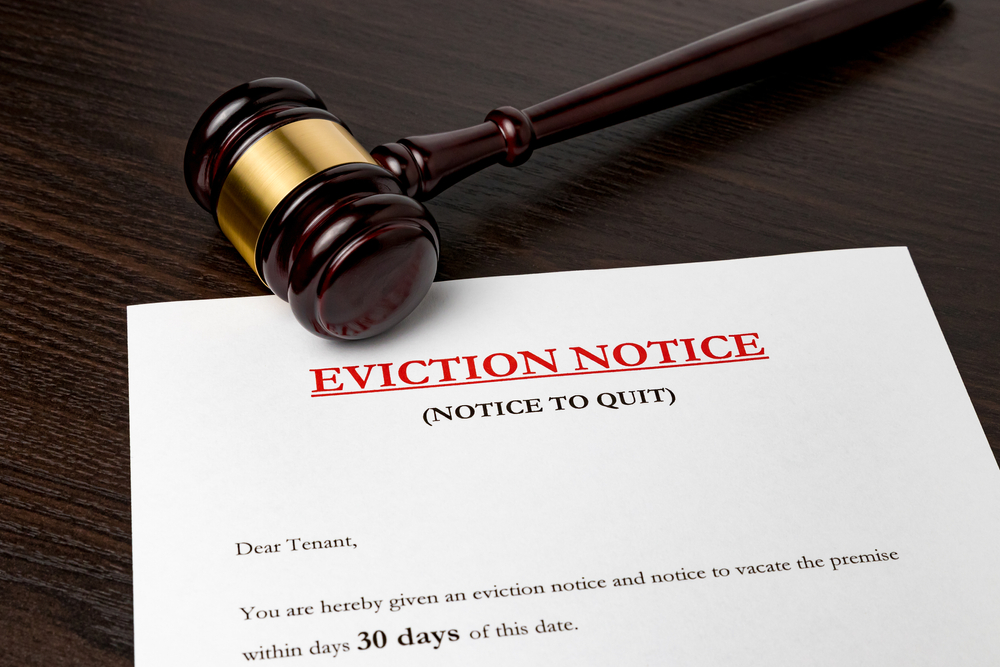If you’re a landlord in South Carolina facing the eviction process, you need to be well-informed. From serving notices to court actions, each step requires attention to detail. This guide offers a comprehensive overview to help you navigate the eviction process successfully.
Familiarize yourself with the rules and regulations in South Carolina to ensure a smoother resolution to any tenancy issues. Let’s explore the essential information you need for a successful eviction process in South Carolina.
Eviction Notice and Lawsuit Filing
When initiating the eviction process in South Carolina, you must serve the tenant with a zero- to 14-day eviction notice before filing a lawsuit with the court. According to South Carolina eviction law, this notice is a crucial step in the eviction process.
The eviction notice must specify the reason for eviction, whether it’s for non-payment of rent or another valid cause. After serving the eviction notice, the landlord can proceed with filing an eviction lawsuit in the appropriate court.
Understanding the specific requirements outlined in the South Carolina eviction notice and laws is essential to ensure a smooth and lawful eviction process in South Carolina.
Types of Notices and Legal Actions
After serving the eviction notice and filing an eviction lawsuit, you must be aware of the different types of notices and legal actions that can be taken in the South Carolina eviction process. There are specific types of notices that can be issued, including a Rent Demand Notice giving tenants 5 days to pay or quit, a Lease Violation Notice providing 14 days to cure or quit, and an Unconditional Notice to Quit that requires immediate vacation.
In addition, landlords have the right to recover actual damages, seek injunctive relief, and file a complaint with the court. The eviction lawsuit is typically filed in Circuit or Magistrate Court, with the court serving the notice to the tenant through various methods. Should the tenant fail to respond, the court may issue a warrant of ejectment.
Tenant Response and Court Proceedings
How should you respond to the court during the eviction process in South Carolina?
As a tenant, it’s crucial to submit an Answer to the Rule and set a hearing date within ten days.
If you choose to raise defenses, ensure that any rent due is paid promptly, and keep written receipts for all rent payments.
Either party can demand a trial by jury, so be prepared to present your case.
During the court hearing, the judge will listen to both sides and issue a judgment.
If the ruling favors the landlord, a Writ of Ejectment will be issued.
Enforcement of Eviction
To enforce an eviction in South Carolina, the officer serves the tenant with a Writ of Ejectment. Once the Writ of Ejectment is served, you, as the landlord, give the tenant 24 hours to vacate voluntarily.
If the tenant doesn’t leave within this timeframe, the officer will return to forcibly remove them if necessary. In situations where the tenant is ill or elderly, the officer may grant a delay.
After the eviction, the tenant’s personal property must be stored for at least 48 hours. If dealing with a squatter, who may potentially be charged as a criminal trespasser, ensure they meet the specific criteria for squatters’ rights before taking further legal action.
Cost Estimates and Considerations
When estimating the costs of evicting a tenant in South Carolina, consider various factors that may impact your financial outlay. Apart from court fees, which typically range from $40 to $50 for filing an eviction lawsuit, you may also need to budget for attorney fees if you choose to hire legal representation.
Additionally, there are costs associated with serving legal notices to the tenant, which can vary depending on the method used. Lost rent during the eviction process and any necessary repairs or cleaning to prepare the property for a new tenant should also be factored into your budget.
Ensuring you have a comprehensive understanding of these potential expenses will help you plan effectively for the eviction process.
Conclusion
In conclusion, as a landlord in South Carolina, understanding the eviction process is essential for protecting your property rights. By following the specific rules and regulations, serving proper notices, and navigating court proceedings effectively, you can ensure a smoother resolution to any tenancy issues.
Remember to consider the potential costs involved and be prepared for enforcement actions if necessary. Stay informed and proactive to successfully navigate the eviction process in South Carolina.
Stay in touch to get more updates & news on Gossips!




